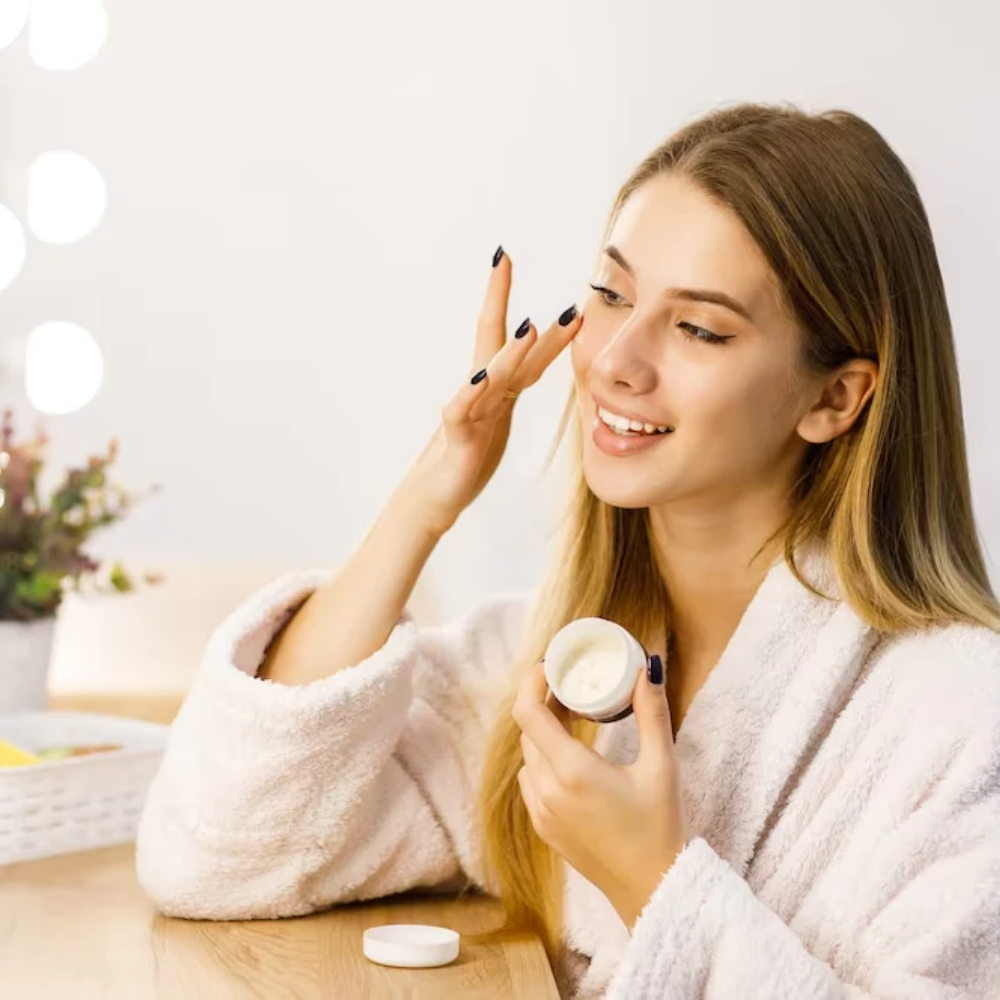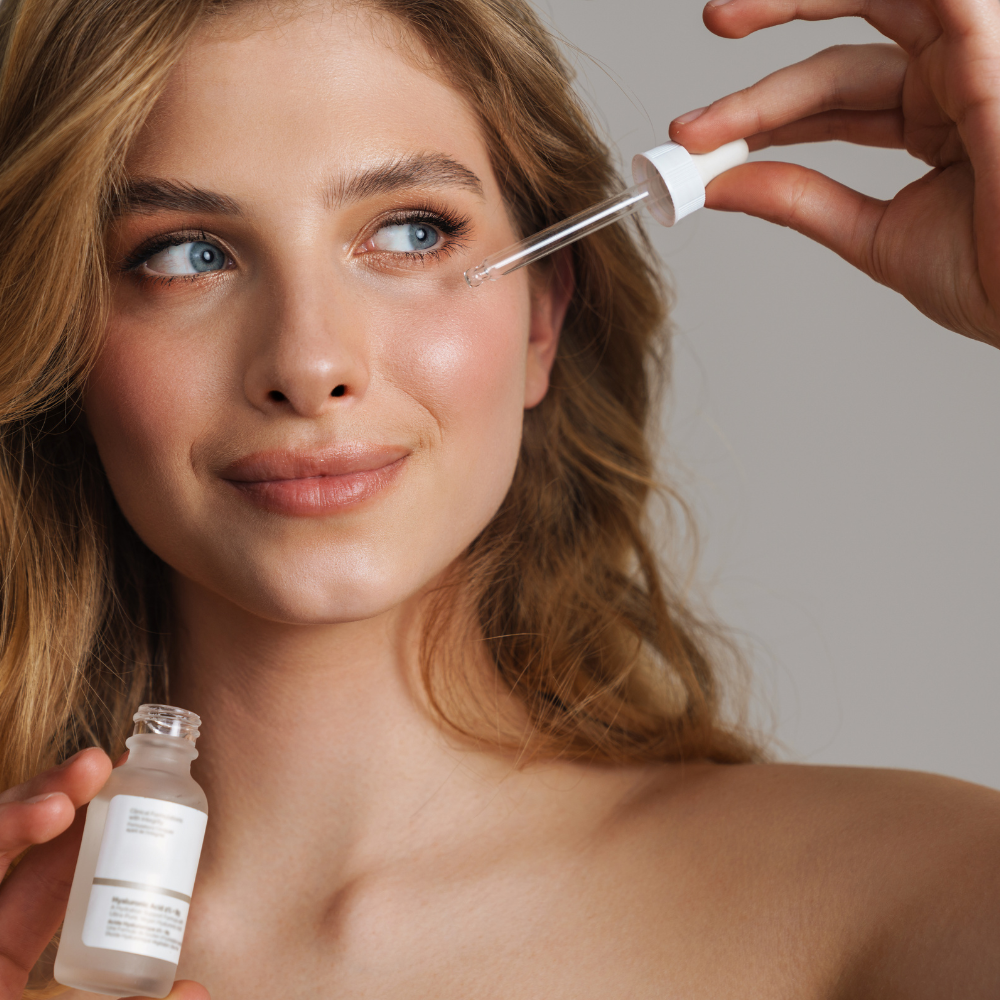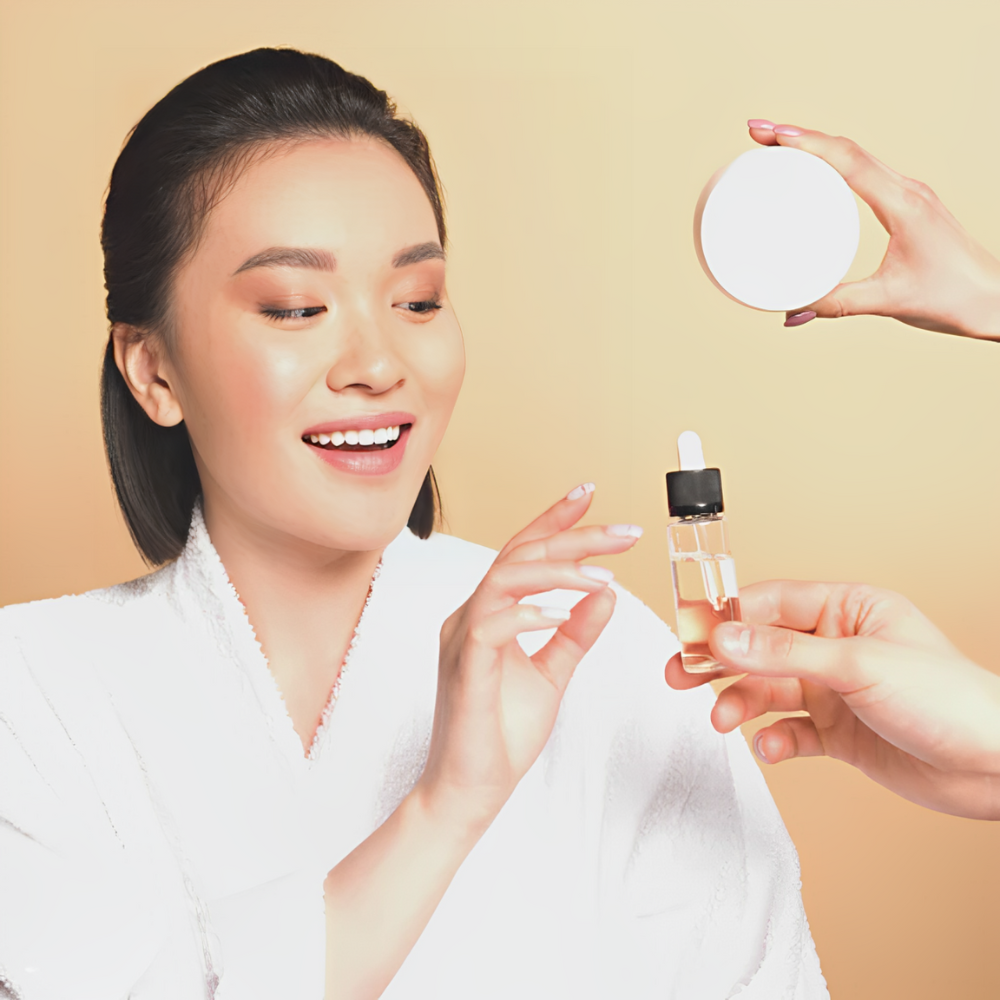Eye creams and eye serums are two of the most popular skincare products designed to address a range of issues such as dark circles, fine lines, wrinkles, puffiness, and dryness around the delicate eye area.
While both have similar formulations that target these concerns, there are key differences between them that make some people wonder if one is better than the other.
In this article, we will delve into the world of eye creams and serums to understand their unique properties, benefits, and limitations. We will explore why some individuals prefer one over the other and provide you with all the information you need to determine which product would suit your specific needs best. So let's dive in!
Overview of Eye Creams

Eye creams are typically thicker and heavier in texture compared to serums. They contain a higher concentration of oils, waxes, and other nourishing ingredients that help to moisturize the delicate skin around the eyes. These formulations are often targeted towards individuals with dry or mature skin as they provide long-lasting hydration.
However, not all eye creams have a rich consistency. Some brands offer lightweight options that absorb quickly into the skin without leaving any greasy residue. These products are suitable for those with oily or combination skin types who still want to reap the benefits of an eye cream without feeling weighed down.
Aside from hydrating the under-eye area, eye creams also contain active ingredients such as retinol, hyaluronic acid, vitamin C, and caffeine that target specific concerns. For instance, retinol stimulates collagen production to reduce fine lines and wrinkles, while caffeine helps to constrict blood vessels and reduce puffiness.
Overview of Eye Serums

Eye serums are lightweight formulations that contain a higher concentration of active ingredients such as peptides, antioxidants, and plant extracts. These ingredients are able to penetrate deeper into the skin compared to eye creams, making them more effective in addressing specific concerns.
Serums are designed for targeted treatment of issues like wrinkles, dark circles, and puffiness. They also have anti-aging properties that help to improve skin elasticity and firmness. Some serums even offer brightening effects to reduce the appearance of under-eye discoloration.
One major difference between eye serums and creams is their delivery system. Serums typically come in a pump or dropper bottle, allowing for precise application without any wastage. This makes them more cost-effective in the long run compared to traditional cream formulas that may require more product per use.
Main Differences Between Eye Creams and Serums

Now you know the overview of eye creams and serums, let's take a closer look at their main differences.
Texture
The texture of eye creams is generally thicker and creamier, which helps to create a protective barrier on the skin. This rich consistency allows for deep hydration, making them ideal for those with dry or mature skin types.
Conversely, eye serums are lightweight and often more fluid, allowing them to absorb quickly into the skin. This fast absorption is beneficial for individuals seeking an immediate delivery of active ingredients without the heaviness that some creams may impart.
As a result, the choice between a cream and a serum often depends on personal preference and skin type: those wanting intensive hydration may lean towards creams, while those who prefer a lighter feel may opt for serums.
Active Ingredients
Both eye creams and serums contain active ingredients, but their concentrations differ. Eye creams usually have a higher concentration of moisturizing ingredients like oils, waxes, and hyaluronic acid to hydrate and nourish the delicate skin around the eyes.
On the other hand, eye serums focus on delivering a higher concentration of targeted active ingredients such as peptides, antioxidants, and plant extracts. These potent ingredients are able to penetrate deeper into the skin compared to creams, making them more effective in addressing specific concerns.
Delivery System
Eye creams typically come in jars or tubes that require scooping or squeezing out the product. This can sometimes lead to using more products than necessary, which can be wasteful and costly in the long run.
Serums, on the other hand, are often packaged in pump or dropper bottles that allow for precise application without any product wastage. This also makes them more hygienic to use as you don't have to dip your fingers into a jar repeatedly.
Absorption Rate
Due to their thicker texture, eye creams may take longer to absorb into the skin compared to serums.
This is why they are recommended for use at night before bed so they can work while you sleep. Serums, however, have a thinner consistency and are absorbed quickly into the skin, making them suitable for use in the morning before applying makeup.
Additionally, the absorption rate of serums allows for layering with other skincare products without feeling heavy or greasy. This is especially beneficial for those with oily or combination skin who may not want to use a heavy cream during the day.
Targeted Concerns
Both eye creams and serums offer specific benefits for various concerns around the delicate eye area.
Eye creams are often targeted towards hydration and nourishment, making them ideal for dry or mature skin types. They may also contain anti-aging ingredients like retinol and vitamin C to reduce fine lines, wrinkles, and dark circles.
Serums, on the other hand, can address more specific concerns such as wrinkles, dark circles, and puffiness. They may also offer brightening effects for under-eye discoloration or firming properties for improved skin elasticity.
Ultimately, the choice between an eye cream or serum depends on your individual needs and preferences. You may even choose to use both in your skincare routine – a cream at night for deep hydration and a serum during the day for targeted treatment of specific concerns. Whichever option you choose, incorporating an eye product into your routine can help improve the appearance of the delicate skin around your eyes.
Which One Should You Choose?

Now you know the differences between eye creams and serums, the question is which one should you choose? Ultimately, it depends on your personal preference and specific concerns.
If you have dry or mature skin and are looking for deep hydration and nourishment, then an eye cream may be the best option for you. On the other hand, if you want targeted treatment for issues like wrinkles, dark circles, or puffiness, a serum may be more effective due to its higher concentration of active ingredients.
It's also important to consider your daily routine and preferences when choosing between an eye cream or serum. If you prefer a lightweight feel and need something that absorbs quickly for use under makeup, then a serum may be more suitable. However, if you prioritize intense hydration and don't mind a thicker texture, then an eye cream may be the better choice.
Ultimately, it's important to choose a product that works well for your skin type and addresses your specific concerns. Consider trying out both eye creams and serums to see which one gives you the best results and fits seamlessly into your skincare routine. With consistent use, both can help improve the appearance of your delicate eye area for brighter, more youthful-looking skin.
Does A Combination Of Both Work?
In some cases, using both an eye cream and serum can be beneficial for your skin. As mentioned earlier, you may choose to use an eye cream at night for deep hydration and a serum during the day for targeted treatment.
Additionally, layering a serum under an eye cream can enhance its effects by providing a boost of concentrated active ingredients. This combination allows for maximum hydration and targeted treatment, making it suitable for those with very dry or mature skin.
Another way to incorporate both products into your routine is by alternating between them daily. For example, using a cream one day and a serum the next, to reap the benefits of both types while still giving your skin a break.
Ultimately, it's up to personal preference and experimentation to find the best combination for your unique needs. As long as you are using high-quality products with effective active ingredients, incorporating both an eye cream and serum into your routine can have significant benefits for the delicate skin around your eyes.
How To Choose The Best Option For You
Now you know everything about eye creams and serums, but how do you choose the best product from the many options available?
First, it's important to understand your specific concerns and what you want to achieve with an eye product. Are you looking for hydration, anti-aging effects, or targeted treatment for dark circles or wrinkles?
Next, consider your skin type. If you have dry or mature skin, a cream may be more suitable due to its thicker texture and hydrating properties. For oily or combination skin, a serum may be better as it is lightweight and absorbs quickly.
Additionally, always read the ingredients list when choosing an eye product. Look for active ingredients like hyaluronic acid, retinol, vitamin C, and peptides that target your specific concerns.
Finally, don't be afraid to try out different options. Every person's skin is unique, and what works for someone else may not work for you. Experiment with various products until you find the best one that gives you the desired results.
FAQs
What are the differences between eye serum vs eye cream?
Eye serum vs eye cream differs mainly in texture and formulation. Eye serums are typically lighter and more concentrated, allowing them to penetrate deeper into the skin layers. Eye creams are thicker, providing more hydration on the skin's surface. Both eye serum and eye cream can be effective, depending on your specific skin concerns.
Is eye serum better for sensitive skin?
Eye serums can be better for sensitive skin as they are often formulated with fewer heavy ingredients and are less likely to clog pores. However, it depends on the specific product. Those with sensitive skin should look for gentle formulations that target their specific skin concerns, such as crow's feet or puffiness.
Should I use both eye serum and eye cream for aging skin?
Using both eye serum and eye cream can be beneficial for aging skin. The serum can penetrate deeply to address issues like fine lines and crow's feet, while the eye cream can provide surface hydration, creating a protective barrier on the skin's surface. This combination can be especially effective for targeting multiple aging concerns.
Is eye serum better for oily skin?
Eye serum can be better for oily skin because it is lighter and less likely to contribute to oiliness around the eyes. It absorbs quickly into the skin layers without leaving a greasy residue, making it a good choice for those with oily skin who are concerned about clogging pores.
Can eye serums address specific skin concerns more effectively?
Yes, eye serums are often formulated to target specific skin concerns, such as dark circles, puffiness, or fine lines. Due to their concentrated nature, they can penetrate deeper into the skin layers to address these issues more effectively than some eye creams, which may focus more on surface hydration.
Which is better for treating crow's feet: eye serum or eye cream?
Both eye serum and eye cream can be effective for treating crow's feet. Eye serums can penetrate deeper into the skin to target fine lines, while eye creams provide moisture to plump the skin's surface. For comprehensive treatment, using both products together can offer the best results for crow's feet and other signs of aging.
Conclusion
In conclusion, both eye creams and serums offer targeted benefits for the delicate skin around our eyes.
While eye creams are best for deep hydration and nourishment, serums can address specific concerns like wrinkles, dark circles, and puffiness. Ultimately, the choice between an eye cream or serum depends on personal preferences and individual needs.
For maximum results, you may choose to use both products in your skincare routine or alternate between them. When choosing an eye product, consider your specific concerns, and skin type, and always read the ingredients list to ensure you are getting effective active ingredients.
With consistent use of high-quality products, you can achieve brighter, more youthful-looking skin around your eyes. So go ahead and choose the best option for you, and don't be afraid to experiment until you find the perfect fit for your unique skin.
Subscribe to our email newsletter and unlock access to members-only content and exclusive updates.

Comments